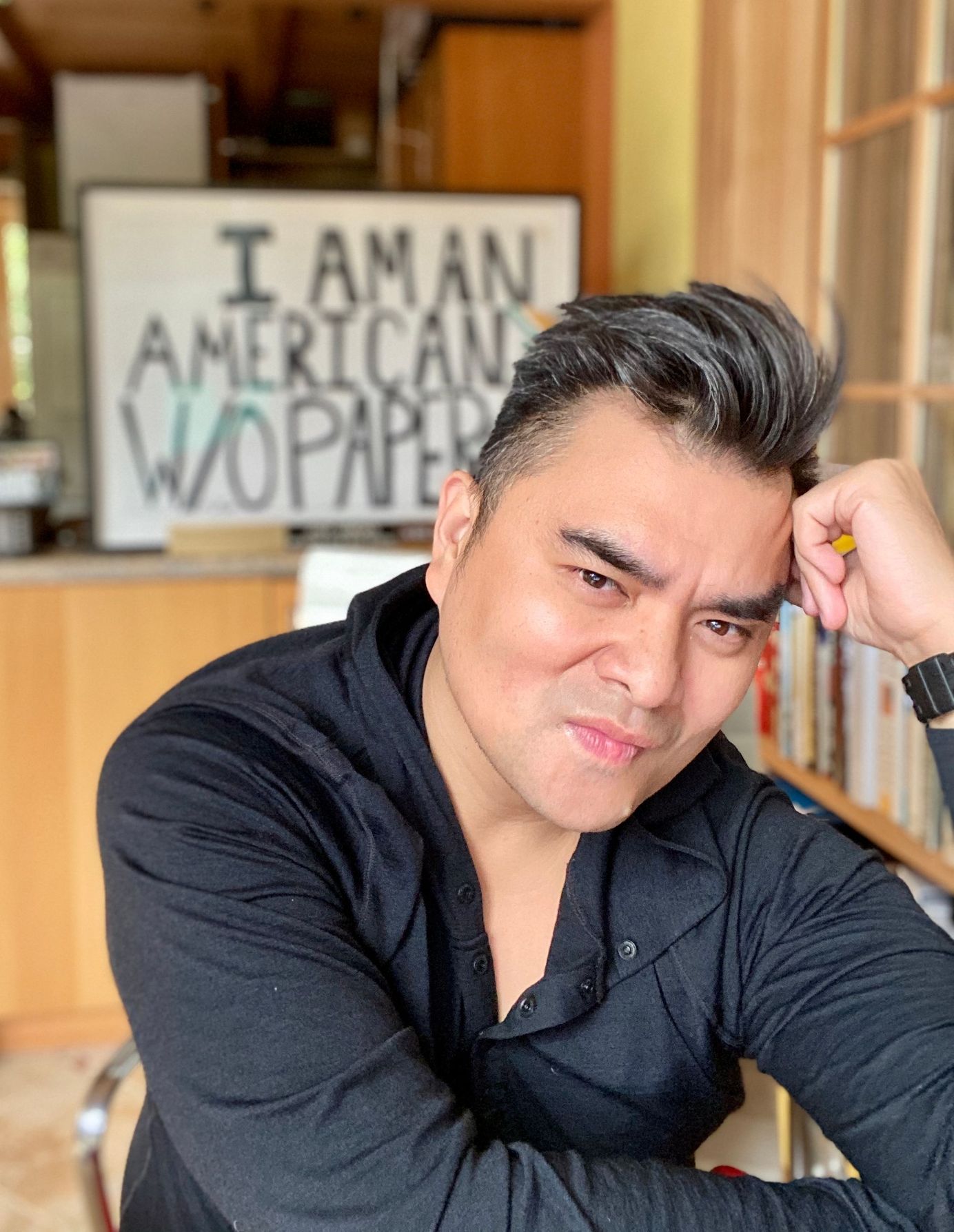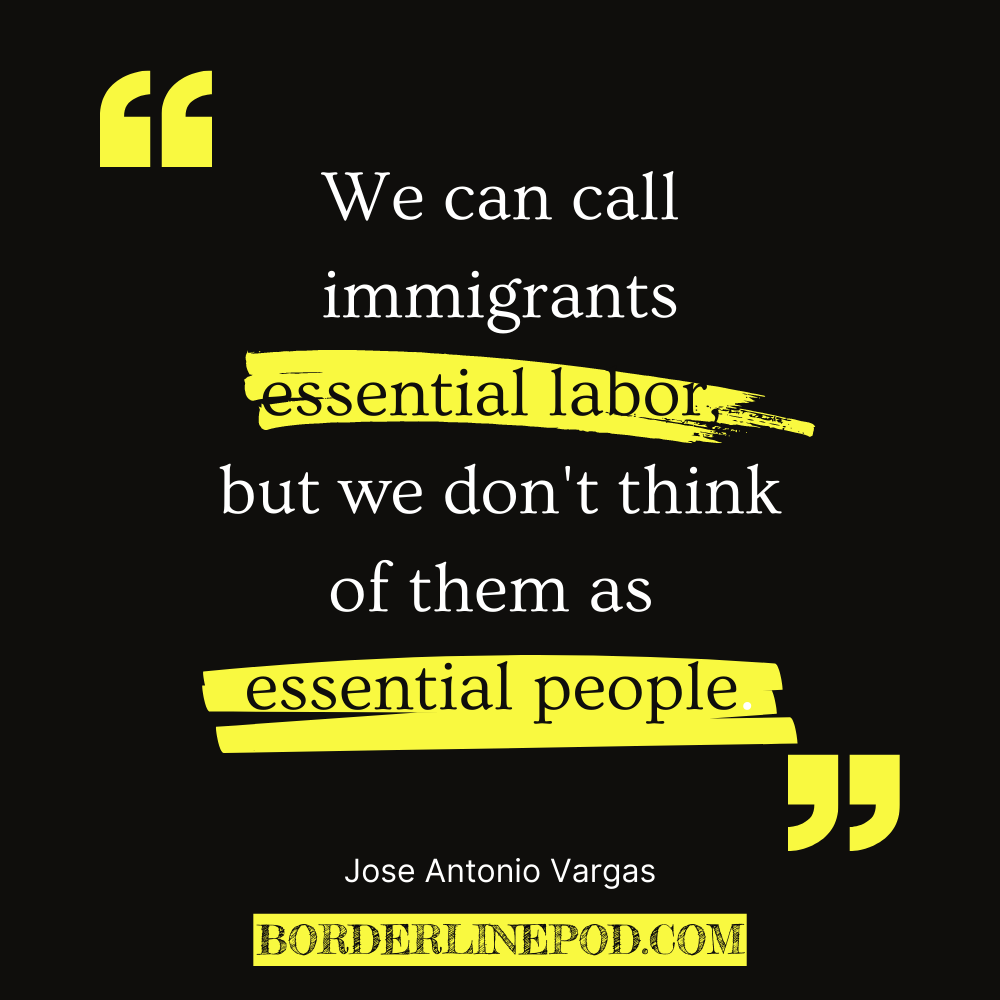
We need to start telling better stories about immigration
"Storytelling is the only place where nuance can happen," says Jose Antonio Vargas
Many people don't often meet immigrants. They don't socialise with them, don't work or go to school with them. It's not that they're against it exactly. It's just the way many of our countries are built – whole urban neighbourhoods are majority first-generation, while you can drive hours in the countryside without hearing a foreign accent. Guess what that does to our public discourse? My parents' village in Normandy put Marine Le Pen ahead in the first round of the French presidential elections 10 days ago. The only foreigner I've ever seen there is the Russian oligarch who bought the local chateau.
For many, their only significant encounter with immigrants will be in the media, whether in breathless news bulletins about boat crossings from Calais to Dover and Zuwara to Lampedusa, or on US primetime dramas where one in four immigrant character is associated with criminality. Or maybe they'll be lucky and come across one of the smarter shows that Jose Antonio Vargas and his team at Define American have helped shape.
“Every immigrant will tell you, the first thing we knew about America, we learned from the screen.”
Vargas, journalist and "American without papers", publicly revealed his undocumented status more than a decade ago. Since then, he's been speaking up for a more nuanced and complex understanding of immigration and immigrants. With Define American, he wants to humanise the immigration story through news and pop culture. He works with Hollywood and TV networks on creating believable characters and storylines that reach the "moveable middle", neither preaching to the (small) choir of the pro-immigrant left, nor spinning wheels targeting the anti-immigrant far right. The meetings go something like this: No, your undocumented character can't magically get a green card before the end of the season. Sure, refugees fall in love and sometimes they're petty, too. Here's what happens when immigration enforcement comes knocking.
You may never get to meet Jose, but you need only turn to Netflix to meet Mateo, the character Jose inspired on NBC's Superstore. And once you've met Mateo, it's a lot harder to have black-and-white preconceived notions about immigrants. That's the point.
“Most Americans, specifically white Americans, live in predominantly white towns and have predominantly white friends. Meaning the only time they meet a person of colour and/or an immigrant is through the media they consume. So what? I'm going to leave it up to Fox News? I'm going to leave it up to conservative talk radio? We have to intervene.”
I was thrilled to speak with Jose Antonio Vargas for this latest episode of Borderline. We share a belief in storytelling as an empathy machine and in media as the pathway to moving hearts and minds at scale. Here are a few of my favourite things we talked about. You can listen to our full chat on the podcast or read the transcript here.
📈 The economic argument for immigration is a fallacy

🥰 On the importance of telling a different immigration story
“Right now we're creating policies that in many ways exist in a moral vacuum. And sometimes I think the dehumanisation of migrants happens because we haven't heard stories that insist on complexity and nuance. When Trump was president, all I kept thinking was 'I don't want any more tragic porn.' Whenever you turn on the TV, it was like an immigrant crying, torn from their families. Who is this for? Just even showing photos of smiling, undocumented people was a way of rebelling, of once again insisting on nuance and complexity.”
💔 On regretting his mother's decision
“Yes. I regret it. If I had had a choice, if I had had a say in the matter as a 12-year-old, I would have told my mom, 'Don't do that. I know that you mean well, I know that you want better for me, but what's actually better for me is to have you as my mom.'
Now, when do we talk about that in the immigrant rights movement? Where is that conversation? Because I don't think we talk about that enough. And I guess I'm quote unquote successful. I don't really know what that means. I'm defining for myself what that means. But relationships are hard for me. I think some part of me got left on that plane when my mom said goodbye. And if I could do it again, I would have said, 'No, I want to stay.'”
🌎 How globalisation came for capital, never people
“We have yet to find some sort of language that talks about how borderless business and money is and how people are still very much locked up by these borders and by these limitations. And I'm trying to understand: What are the narrative shifts that we all need to work on so that people can actually be free to move from one country to the next? If they want to.”
🕊On living undocumented and remaining free️
And so much more... Check out the podcast and let me know what you think.
Hey, you read to the end!
Don’t miss future articles like this one; let me into your inbox.







